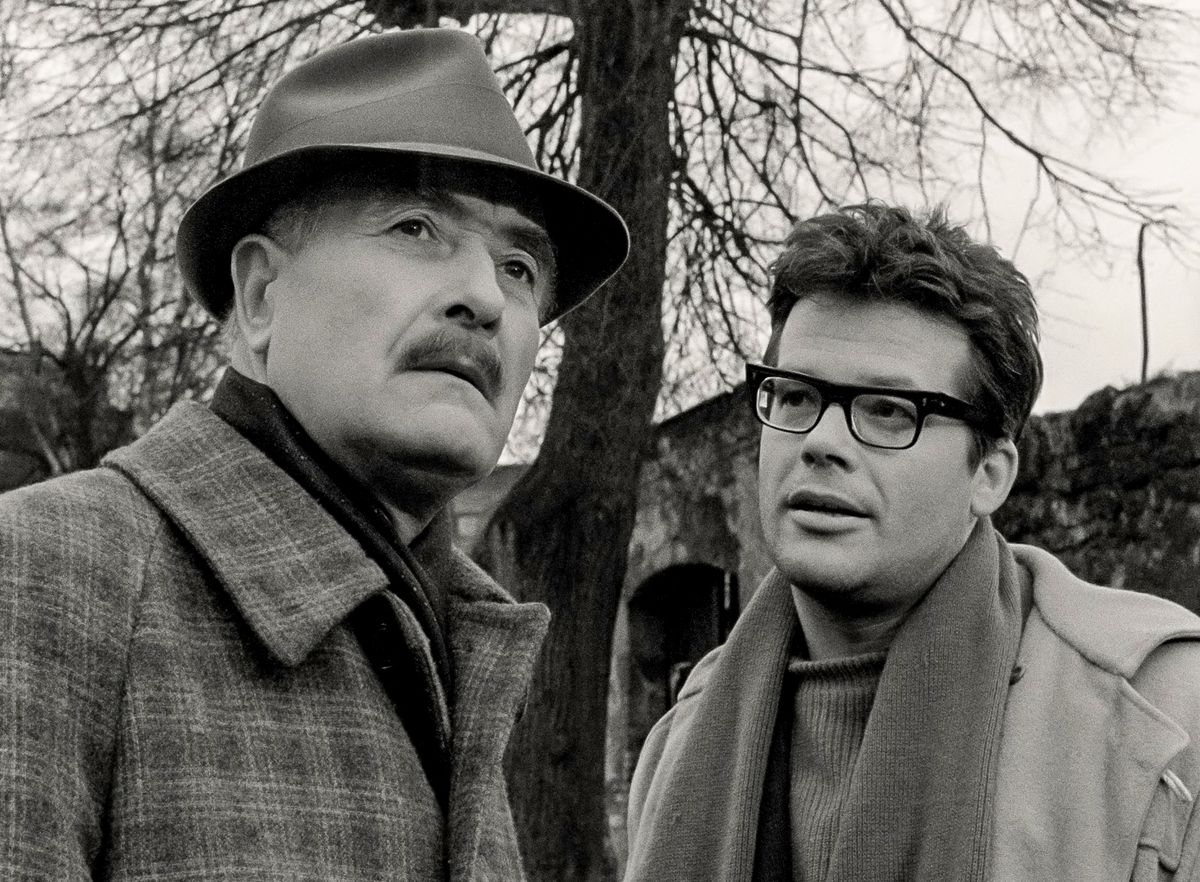tytuł oryginalny: Szyfry / Codes
reżyseria: Wojciech Jerzy Has
występują: Jan Kreczmar, Zbigniew Cybulski, Ignacy Gogolewski, Irena Horecka
kraj i rok produkcji: Polska 1966
czas trwania: 80'
data premiery: 1966-12-25
original language: Polish with English subtitles

Dramatyczny list od syna sprawia, że Tadeusz, który mieszka w Anglii od czasu klęski wrześniowej 1939 roku, wraca do kraju. Maciek opowiada mu o matce niepotrafiącej pogodzić się ze śmiercią Jędrka – młodszego syna, który zginął podczas okupacji w tajemniczych okolicznościach. Opowieści Maćka, ciągle żyjącego wojennymi wspomnieniami, są dla ojca niezrozumiałe. Tadeusz nie umie odnaleźć się w świecie niegdyś najbliższych mu ludzi...
Po „Rękopisie znalezionym w Saragossie” reżyser powrócił do formy i tematu zawsze mu bliskiego – subtelnej analizy psychologicznej. Niedocenione dzieło, polemizujące z legendą szkoły polskiej, dzięki swojej formie obrazowania – realizmowi przeplatanemu symbolicznymi wizjami – sprawia, iż „Szyfry” są jednym z najoryginalniejszych filmów polskiej kinematografii.
Has’ psychological drama refers to problems of Polish schools. The main difficulty is analyzing the experience of the Second World War. In the film we can see an old man returning to his homeland from Paris emigration. He’s a veteran of the First and Second World War. Tadeusz decides to visit his family after 25 years being called by his son, Maciek. It’s connected with Zofia, Maciek’s mum. She’s mentally ill and her condition is getting worse. Tadeusz meets his old friends, he wants to solve the riddle of his younger child’s disappearance during the occupation. But the talks don’t explain anything. On the contrary, it turns out that the experience of occupation survived at home can’t be understood by a soldier who has survived two wars. Maciek explains that their flat used to be a conspiracy contact point. What is more, German clerks used to live there. Actually, Zofia’s mental illness is a consequence of that horrible time. Tadeusz can’t stop thinking about his fake life that he had to lead during the occupation. Taduesz’s coded talks with his countrymen are combined with oneiric visions. We could see a young boy and his father wearing a First World War helmet. They are accompanied by fragments of Anhelli, a poem by Juliusz Slowacki. It’s the answer to Mickiewicz’s messianism and Artur Grottger’s paintings. Similarly to 'How To Be Loved', Has disputes with the myth of war heroism. He focuses on the consequences suffered by people who have stayed at home, mainly women and children. The lead roles are played by Zbigniew Cybulski (Maciek), the icon of Polish romanticism, and Polish stars: Jan Kreczmer (Tadeusz) and Irena Eichler (Zofia). An adaptation of Andrzej Kijowski’s short story (1964). He’s a co-author of the screenplay.